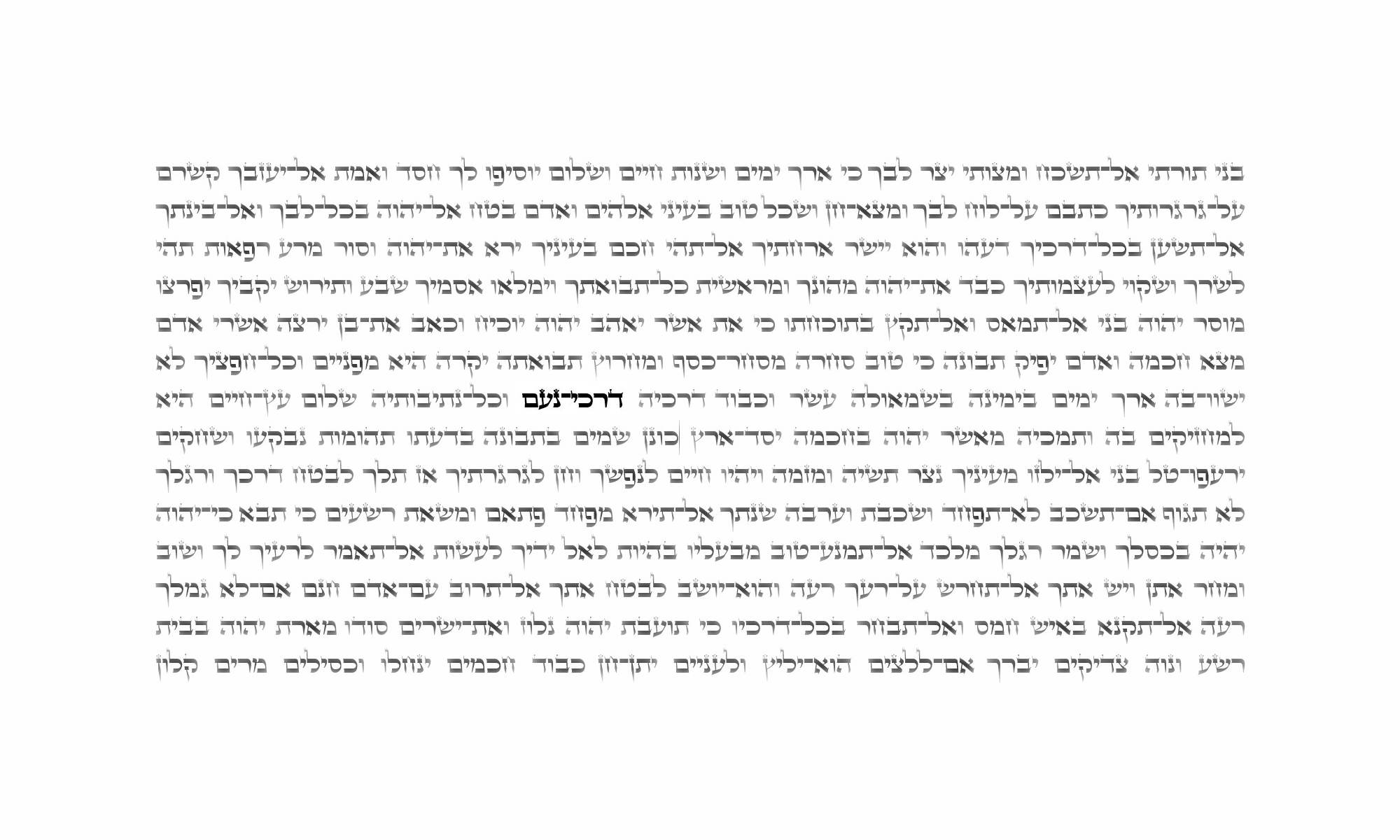I was speaking to a friend of mine who had made Aliyah a few years ago. She had spent many arduous months trying to settle her teenage daughter in a good school for chutznikim in Israel. The year before last she had struggled with the system, with obtaining assistance and subsidised hours of help for new Olim, with finding a school with English options. After much hard work she told me how happy she was with the school she had found. She was so grateful for the wonderful, sensible principal and her daughter’s class teacher last year. But as well as her hakarat hatov and appreciation, she then she added something even more admirable. She shared with me a warning to herself and a hope that she would not forget to daven just as hard for a good teacher this coming school year.
In this week’s Parsha we learn about the rewards and punishments that Bnei Yisrael will receive depending on whether they fulfil Hashem’s commandments.
As part of His warning, Hashem warns Bnei Yisrael specifically in times of wealth and ease not to forget Him. (“Take care lest you forget Hashem, your G-d…lest you eat and be satisfied, and you build good houses and settle…and your heart will become haughty and you will forget Hashem…(Devarim 8:11-14).
This is the danger and test of wealth. When poverty or difficulty strikes, the risk in our Avodas Hashem is to not despair and not forget that Hashem loves us and is doing this for our best. However, when a period of tranquillity and ease and satiety occurs, we have an equally tough challenge – to remember that it is Hashem, and not our own hand, that brought about our fortune. In the ease and enjoyment of the moment we may erroneously forget Hashem c”v who gave it all to us (and can take it away in a second), and presume “the strength and the might of my hand gave me all this wealth” (passuk 8:17).
We may instinctively turn to Hashem in times of need – it is human nature to rely on others when we feel we need their help, so it may be a natural extension of this instinct to turn and rely on Hashem. But what about times of ease? Do we thank Hashem and praise Him and recognise His continued care and involvement when things are flowing? And if we do, do we do so with the same level of intensity and kavana as when we desperately need His help?
It is arguably difficult to maintain this same level of reliance and attachment to Hashem when we feel things are going well and we feel that we are independent. We may feel self-satisfied, smug, complacent, or just not the same level of passion in our davening and service.
What can we do to combat this risk?
In the Artscroll Chumash Devarim, Ramban explains that in order to dispel such a notion, Moshe reminded Bnei Yisrael to remember the Exodus and the tribulations in the Wilderness.
So too, in times of ease and plenty, during the (perhaps rare) times as parents when our children’s lives seem to be flowing smoothly and everything we touch turns to gold, we can keep ourselves from forgetting and falling by reminding ourselves of the tougher times when Hashem helped us through. We can try to conjure up – either in our imagination, from our memory or e ven by writing it down – all those times we did not feel we could scrape through and how Hashem saved us. At the very least, we can remember how our child was brought into the world, how Hashem created a life and the amazing miraculous gift of our precious bundles of life! And then the relief and praise we feel may be more, (if not equally) passionate and heartfelt as that experienced during times of strife.
Just as my friend had to remind herself to daven again for a good teacher going forward even though she had just experienced a good passing year, so too we can strive to remember to daven and connect to Him when the going is good. If we somehow manage to reach this genuine level of heartfelt connection to Hashem in the good times, perhaps Hashem will not need to send us any lack in order to give us our purpose and maximum pleasure in this World – a relationship with Him.
Wishing you a Shabbat Shalom umevorach, a beautiful, strong connection to Hashem through all the good in your life
With bracha
Chaiya Danielle Ledder
